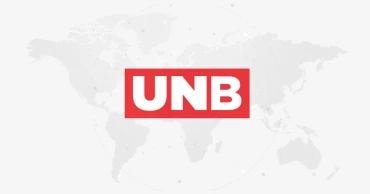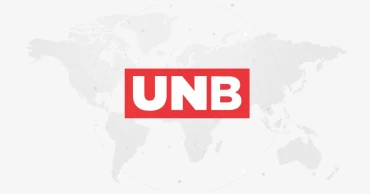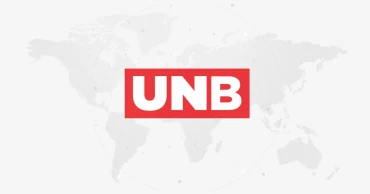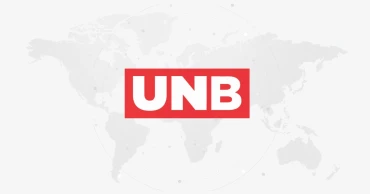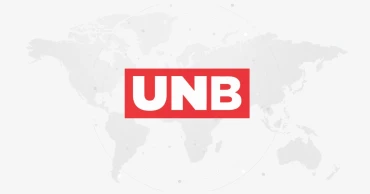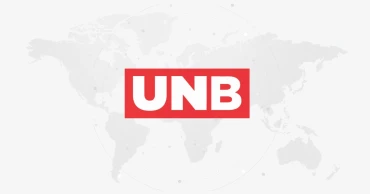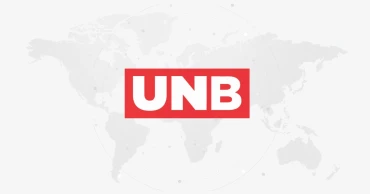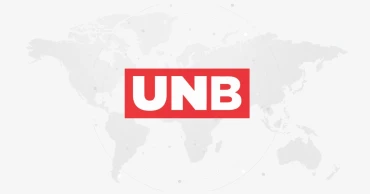State Minister Nasrul Hamid
Power tariff hike from February 1, not March 1
Power tariff will be increased from February 1 instead of March 1, said State Minister for Power, Energy and Mineral Resources Nasrul Hamid on Thursday (February 29, 2024).
Gazette notification will be issued today in regard to the power tariff adjustment, he said while briefing reporters at his ministry.
Earlier he said the new tariff will come into effect from March 1.
He said the power tariff will be hiked between Tk 0.34 and Tk 0.70 per unit for all kinds of consumers depending on their volume of consumption while gas price will go up by Tk 0.75 per unit only for power plants.
Govt raises gas prices for power plants by Tk 0.75 per unit
He also said that a dynamic fuel pricing will be introduced for the consumers from March 1 under which price of petroleum fuel will go up and down in line with international market price.
“Each month fuel price will be declared for the consumers”, he said adding neighbouring India do this every day.
He noted that the steps have been taken to minimise the government losses caused by the increase in dollar rate. “This year the government will incur loss of Tk 43,000 crore due to sale of electricity at lower price,” he said.
This step has been taken as part of the government move to come out of the subsidy now being given to the power sector, said the minister.
According to the BPDB’s Annual Report 2022-23, the fiscal year saw the production of 87,024 million kilowatt hours of electricity at a total cost of TK 98,646 crore.
Its per unit production cost was Tk 11.33, while it was selling electricity at Tk 6.7 per unit — incurring a loss of about Tk 4.63 per unit.
Electricity price to go up from March 1: Nasrul
This imbalance has led to a staggering loss of Tk 47,788 crore for the fiscal year, as the government grapples with purchasing power from private and international sources at significantly higher rates.
With this huge loss, the government has been facing great trouble as it has to purchase electricity worth Tk 82,778 crore from private sector power producers, while it generates electricity worth Tk 13,307 crore from its own generation plants.
The annual report also shows that the BPDB’s average per unit production cost from its own plants is Tk 7.63, while it is Tk 14.62 at the independent power producers or IPPs (private sector), at rental plants Tk 12.53, at public plants Tk 6.85, and imported power from India at Tk 8.77.
The government purchases electricity from the private sector and India in dollars.
Read more: Bangladesh seeks ITFC cooperation to modernise power distribution, transmission system
2 years ago
More gas likely to be found in Sylhet’s Kailashtila field: Nasrul
Bangladesh's State Minister for Power, Energy, and Minerals Resources Nasrul Hamid hoped that 1.6 TCF (trillion cubic feet) more gas will be found at the Kailashtila gas field in Golapganj upazila of Sylhet.
It will be confirmed once the drilling is completed within the next four months, he said.
The state minister made the remarks after visiting the Kailashtila well No 8 on Saturday (February 17, 2024).
Nasrul said the Kailashtila field previously had 3 TCF reserves and more gas reserve will be found once the current search wells are drilled.
Read: Massive fire set off by gas explosion in Kenya's capital kills at least 3 people, injures over 270
“We are waiting for you to take initiative. The ministry does not undertake any project. We want everyone to show their capability. Sylhet gas field has moved forward, taking on more projects. We want others to come forward as well, ” he told officials.
Mizanur Rahman, managing director of Sylhet Gas Fields Limited, said seven wells were drilled in Kailashtila earlier, and gas was found in every well.
“It is expected to find more than 1 TCF of gas after digging at 3500 meters of the well,” he said.
The drilling of the Kailashtila-8 well started on January 11 this year. The work is expected to be completed in 120 days. State-owned Bangladesh Petroleum Exploration and Production Company (BAPEX) is digging the well.
Read: Gas crisis puts 3 major fertilizer factories out of production for nine days in Ctg
Besides, there is an existing transmission only one and a half kilometers away and a usable process plant at a distance of two and a half kilometers. Although gas is surplus in many areas, including Bhola, and Zakiganj, it cannot be used as there is no transmission.
2 years ago
Action against officials of Petrobangla companies if fail to achieve target: Nasrul
Bangladesh's State Minister for Power, Energy and Mineral Resource Nasrul Hamid has said that each of the companies of the Petrobangla will be given target to drill wells in the gas fields for hydrocarbon exploration and if they fail, the officials concerned will be removed from their posts.
“Nobody will be speared and no persuasion will be accepted against any failure”, he told a seminar titled: “Gas Demand-Supply Scenario; Scope of Seismic Survey and Enhancement of Drilling Activities to Expedite Hydrocarbon Production” organised by Petrobangla at its auditorium in the city on Thursday (February 15, 2024).
Expressing frustration over the activities of the Petrobangla, he said that there is huge deficiency in the organisation and its subordinate bodies to work as a team.
“They don’t work in a coordinated manner. As a result, sometimes gas is found in a well, but processing plant remains unprepared to supply the gas to the national grid,” he said.
Read: Dhaka’s air quality still 'unhealthy', 2nd most polluted in the world this morning
“Sometimes it takes 4 years to get gas supply from a well to the national grid,” he added.
He said Bangladesh Power Development Board (BPDB) and other entities in power sector have been successful in achieving the goal of 100 percent electricity access as they worked as a team.
The seminar, with Petrobangla chairman Zanendra Nath Sarker in the chair, was also addressed by Energy Secretary Md Nurul Alam.
Bakhrabad Gas Distribution Company’s Managing Director Anwarul Islam and Petrobangla’s general manager Meherul Hasan made presentation on the topic of the seminar.
Nasrul Hamid said the Petrobangla planned to drill 48 wells to produce 500 million cubic feet per day (mmcfd) while the country’s demand will go up by 2000 mmcfd.
Read: New executive committee of BSFA pays homage to Bangabandhu
“We’re all looking at Petrobangla to see effective results of its plan…, there is huge prospects in the gas sector,” he added.
He said the country has many inefficient captive power plants which efficiency is 20 percent when some new power plants installed with 62 percent efficiency.
“If we can divert gas to those efficient new power plants, power production cost will come down by 70 percent,” he noted.
In the presentation the Petrobangla officials showed that it has planned to drill 100 wells across the country from which 1500 mmcfd gas will be produced by 2027 when gas demand will go up to 6000 mmcfd.
Read more: Nasrul Hamid seeks ADB's help to create regional power market
2 years ago
Govt in dilemma over raising power tariff or floating more bonds to cut losses
The government of Bangladesh is caught up in a dilemma in choosing the right option to reduce the gap between the cost of power production and revenues generated from sales.
“Top policymakers are divided over whether the government should go for increasing the power tariff further or issuing more bonds through the banking system,” said a top official at the state-owned Bangladesh Power Development Board (BPDB).
He said if the government wants to raise the power tariff, either it has to do it before Ramadan or after Ramadan - these are the questions almost every day that are being discussed at the policy level.
They are also analysing the impacts of floating more bonds to reduce the burden of soaring losses on the part of BPDB, he added.
Read: Retail power tariff hiked 5% to Tk0.19 per unit for lifeline consumers, Tk0.36 on average for others
According to official sources, currently, the production of each unit of electricity costs about Tk 12 while it sells at a rate of about Tk 6.7.
It means the government has to bear the brunt of Tk 5.3 per unit, a top BPDB official told UNB.
The BPDB’s Annual Report 2022-23 shows, the BPDB, as a single buyer, generated 87,024 million kilowatt hours of electricity in 2022-23 fiscal at a total cost of TK 98,646.42 crore.
Its per unit production cost was at Tk 11.33 while it was selling electricity at Tk 6.7 per unit incurring a loss of about Tk 4.63 per unit.
The bulk tariff was last raised by 8.06 percent to Tk 6.70 from Tk 6.20 per unit on January 31 with effect from February 2023.
Read more: Over 10,000MW power in 29 projects in the pipeline, despite yawning overcapacity
Against this, its revenues were Tk 50,858.25 crore, incurring a loss of Tk 47,788.17 crore, showed the BPDB Annual Report.
With this huge loss, the government has been in great trouble as it has to purchase electricity worth Tk 82,778.25 from private sector power producers while it generates electricity worth Tk 13,306.62 crore from its own generation plants.
The annual report also shows that the BPDB’s average per unit production cost from its own plants is Tk 7.63, while it is Tk 14.62 at the independent power producers or IPPs (private sector), at rental plants Tk 12.53, at public plants Tk 6.85 and imported power from India at Tk 8.77.
The government purchases electricity from the private sector and India in dollars.
Read more: Power generation capacity increased by almost 20% to cross 30,000MW in 2023
According to official sources, the government's cumulative outstanding bills have now jumped to about $5 billion, of which the backlog amount in the power sector is about $4 billion (about Tk 43,093 crore), and the remaining $1 billion is in the energy sector.
State Minister for Power, Energy and Mineral Resources Nasrul Hamid also admitted the severity of the crisis.
“Actually the crisis is not of local currency. Somehow we can manage it. But the main crisis is the dollar. We’re not getting dollars from Bangladesh Bank as per our needs,” he recently told UNB.
He noted that the power and energy sectors need at least $1 billion a month to meet payment obligations.
Read: Govt to raise retail power tariff this month
In such a situation, the government recently introduced a number of bonds through Bangladesh Bank to facilitate the BPDB to clear some dues.
“Initially, we have floated bonds worth Tk 5000 crore and it may go up to Tk 12,000 crore,” said a BPDB official on condition of anonymity, adding that it will not be enough to cover the losses, although the government is providing subsidies on a regular basis.
“That’s why the government will have to go for raising power tariff further or introducing more bonds,” he said adding, if more bonds are floated, it may squeeze the private sector’s credit from the banking sector.
But a final decision on what they would do still remains pending.
Read more: Power, energy sectors are saddled with $5 billion outstanding payment amid dollar crisis: Sources
2 years ago
Uninterrupted gas supply by 2026 : Nasrul Hamid outlines energy plans
Bangladesh’s State Minister for Power, Energy and Mineral Resources, Nasrul Hamid, announced a commitment to ensuring uninterrupted gas supply to consumers by 2026. This statement came during a discussion with reporters on Tuesday (January 16, 2024) about the power and energy sector's advancements, potential, and obstacles.
Having achieved the milestone of 100 percent electricity coverage, Hamid noted the government's focus is now on providing continuous power and gas supply by 2026. He highlighted that Bangladesh currently imports 20 percent of its gas, utilizing 80 percent from domestic sources, with no immediate plans to increase imports.
Fashion Design Council of Bangladesh unveils "Khadi- the future fabric show" at Khadi Fest 2024
The exploration of gas in deep sea areas could significantly bolster the energy division, Hamid mentioned. He acknowledged the existing challenges, particularly the ongoing gas shortage, attributing it to reliance on a Floating Storage and Regasification Unit (FSRU). Hamid assured that the current gas crisis is temporary, partly due to reduced pressure during severe winters.
Plans are underway to operationalize the FSRU soon, which is expected to add 400 mmcf of gas to the system. Additionally, another FSRU is set for renovation, with an aim to maintain uninterrupted gas supply starting next March. The minister revealed plans to incorporate two more FSRUs around 2026 and 2027 to meet the anticipated gas demand of 6,000 MMCF in 2027.
Tobacco use declines despite industry efforts to jeopardize progress: WHO
Hamid expressed optimism about domestic gas exploration, noting that most drilled wells have discovered gas. He emphasized the Bhola to Barishal gas pipeline as a top priority, with activities commencing this year. Gas from Bhola, currently supplied in CNG form, is expected to increase and be fully operational by mid-March next year.
The Bibiyana gas field also holds promise, with the minister expressing confidence about significant gas findings there. The immediate goal is to drill around 46 wells by mid-2025, followed by an additional 100 wells. This exploration is projected to add 500 mmcf of gas from domestic sources between 2024 and 2025.
Dhaka Elevated Expressway to be completed in 2024, says Obaidul Quader
Hamid concluded with a hopeful note on the Bibiyana field, which potentially harbors about 1.6 tcf of gas, further enhancing the nation's energy security and self-reliance.
2 years ago
Cross-border power trade between Dhaka, Kathmandu unlikely to start before Nov
Despite an understanding among Bangladesh, Nepal and India, state-owned Bangladesh Power Development Board (BPDB) still cannot import electricity from the Himalayan nation.
On August 28 this year, State Minister for Power, Energy and Mineral Resources Nasrul Hamid had said that import of hydropower from Nepal was almost final.
It seems unlikely that the power trade will happen before November. That means, Bangladesh will not get the opportunity to export its surplus electricity to Nepal during peak demand season in winter in the Himalayan nation.
Electricity demand decreases during winter in Bangladesh while it increases in Nepal.
According to official sources, after a long discussion at political and bureaucratic levels among the countries, India finally agreed to allow Bangladesh to initially import 40 MW electricity from Nepal.
The import was supposed to start between August and September 2023, but negotiation on tariff remained incomplete.
Sources said the decision to start the import of 40 MW power from Nepal was finalised in a two-day meeting of the joint steering committee (JSC) and joint working committee (JWC) on Bangladesh-Nepal power and energy sector cooperation on May 14-15 this year at Patuakhali in Bangladesh.
Ahead of the meeting, Nepalese Foreign Minister Narayan Prakash Saud visited Dhaka and held a meeting with Bangladeshi public and private sector officials where he urged them to invest in the hydropower sector in the Himalayan nation, holding about 60,000 MW of clean energy potentials.
Read: Power tariff raised again by 5 percent at retail level, effective from Wednesday
After the meeting at Nepalese Embassy in Dhaka, Saud had told UNB that he was expecting all issues to be resolved during the Nepalese prime minister’s visit to India – to facilitate Nepal’s export of electricity to Bangladesh.
In the follow-up, according to a report of the Kathmandu Post, during the Nepalese prime minister’s India visit (May 30-June 1), India agreed to facilitate Nepal to export 40 MW electricity to Bangladesh through Indian transmission infrastructure.
India also made an announcement to buy 10,000 MW electricity from Nepal over the next 10 years.
According to a recent report of The Kathmandu Post, “The Bangladeshi side has notified Nepal that they are seeking clearance from the political authorities on the agreement reached between the two sides at the bureaucratic level,” said Kul Man Ghising, managing director of the Nepal Electricity Authority (NEA). “We are awaiting a final response from the Bangladeshi side to move on to tariff negotiation,” he added.
NEA officials said that the two sides have concluded discussion on everything except tariff at the bureaucratic level.
Read: Adani Power team likely to visit Bangladesh to discuss coal price, power tariff
Power Cell Director General Mohammad Hossain said that he is not aware of the latest situation in this regard. He, however, noted that all necessary arrangements have been made for the cross-border power trade from both Bangladesh and Nepal sides.
He said that 40 MW electricity was to be imported through Baharampur-Bheramara transmission lines which have enough capacity to import electricity from Nepal through Indian territory.
Sources said under the planned arrangement, Bangladesh will import electricity from Nepal through an Indian company as a service provider which will first import electricity from Nepal through Indian transmission line and then sell it to Bangladesh.
They said Bangladesh and Nepal prefer a tripartite or regional agreement while India wants bilateral deal in this regard.
Explaining the matter, they said, if Bangladesh wants to import power from Nepal, it has to first sign a deal with India, not directly with Nepal. Then Nepal will sign a separate deal with India. Each deal will be on bilateral basis, and then a trilateral agreement among the three nations will be signed to facilitate the cross-border power trade.
Read more: Hike in retail power tariff is less than in developed countries: Info Minister
Currently, Bangladesh is importing electricity from India through a similar arrangement where the Indian company NTPC Vidyut Vyapar Nigam (NVVN) is selling power to BPDB.
In case of electricity trade between Dhaka and Kathmandu, Nepal Electricity Authority (NEA) will have to sign agreements with both NVVN and BPDB.
Apart from the 40 MW import plan, Bangladesh wants to import 500 MW of hydroelectricity from Nepal via Indian company GMR.
Also read: Retail power tariff hiked 5% to Tk0.19 per unit for lifeline consumers, Tk0.36 on average for others
Officials said Bangladesh and Nepal are still pursuing India to sign the tripartite deal to facilitate the sub-regional power trade among the three nations.
2 years ago
8 Titas officials suspended over mosque blast
Eight officials of Titas Gas Transmission and Distribution Company Ltd working at its Fatullah office were suspended on Monday in connection with the incident of air-conditioner blasts at a mosque in Nayaranganj.
5 years ago
17pc electricity to come from renewable sources: Nasrul
Around 17 percent of Bangladesh’s electricity will come from renewable energy sources by 2041, said State Minister for Power, Energy and Mineral Resources Nasrul Hamid.
5 years ago
